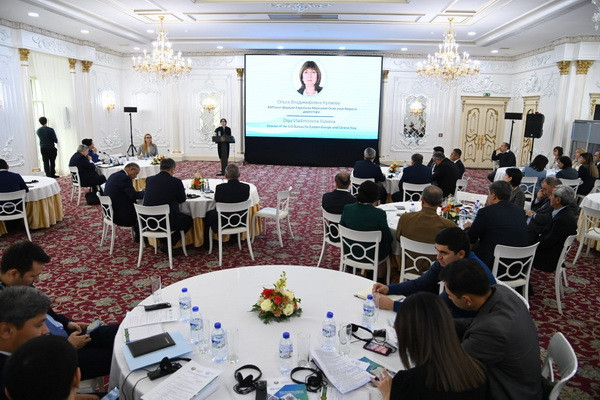
High assessment by the International Labor Organization of the results achieved by Uzbekistan in the system of labor relations
Tashkent, Uzbekistan (UzDaily.com) -- On 22 November 2020, Tashkent hosted a presentation of a monograph by Kari Tapiola, former adviser to the Director General of the International Labor Organization, entitled "Building confidence in the cotton fields: the activities of the International Labor Organization in Uzbekistan."
The event, organized by the National Commission to Combat Trafficking in Human Beings and Forced Labor together with the International Labor Organization, plays an important role in developing new proposals and ideas as part of taking stock of the labor relations system in Uzbekistan and improving the principles of decent work in the country.
The event was attended by the Chairman of the Senate of the Oliy Majlis, the Chairman of the National Commission on Combating Trafficking in Human Beings and Forced Labor Tanzila Narbayeva, the Director of the Bureau of the International Labor Organization for Eastern Europe and Central Asia Olga Kulayeva, the former adviser to the General Director of the organization Kari Tapiola, specialists and experts from a number of international organizations, heads of diplomatic missions of foreign countries in Uzbekistan, as well as representatives of relevant ministries and departments.
Thus, the Chairman of the Senate of the Oliy Majlis T. Narbayeva noted in her speech: “Today, the broad international community confirms that the unique national experience of Uzbekistan in the elimination of child and forced labor should be an example for many countries. At the same time, there is plenty of work to achieve the set goals. We are still faced with individual cases of forced labor, which are also manifested in other areas, which testifies to the remnants of command and control methods that are still in the minds of individual managers, employers in the field - these are remnants of the Soviet past, which we are mercilessly fighting against. Today, medium and small businesses are developing strongly in the country, there is a continuous process of creating new jobs, and we must ensure that they fully meet international standards."
It was noted that the practical cooperation of Uzbekistan with the International Labor Organization and a number of other international organizations in recent years has contributed to the strengthening and development of the system of labor relations. In particular, 10 high indicators were achieved. Thus, the existing problems in the field were identified, which were publicly announced to the general public and the international community, and practical work was carried out to solve them as soon as possible, a completely new system for ensuring human rights was created and a three-level system was formed to combat human trafficking and forced labor in the country (National commission - subcommittees - territorial commissions).
In addition, on the basis of international norms, the legal framework has been improved, representatives of civil society have become the main driving force in the implementation of monitoring activities, dialogue and cooperation with representatives of international non-governmental organizations on labor issues has expanded, and mutual trust has strengthened. In addition, systemic support for citizens working abroad has been raised to the level of state policy, the agricultural system has been reformed, a cluster system has been created, systemic child and forced labor has been completely eradicated.
It is important that the boycott of Uzbek cotton has been cancelled. The US Department of Labor has excluded cotton produced in our country from the "List of goods produced using child and forced labor."
During the event, it was noted that the results achieved by international experts in the field of labor relations, and the work carried out today in cooperation with the International Labor Organization to implement the principles of decent work, are highly recognized in the international arena, and the national experience of Uzbekistan in this regard can become a model for other states.
These issues are also reflected in the monograph, the author of which is the former adviser to the Director General of the International Labor Organization K. Tapiola. It widely highlights the results of work on combating forced labor in Uzbekistan, monitoring the observance of labor rights, and the introduction of international standards in the field of labor.
K. Tapiola noted that all these achievements are the merit of the country, the result of the large-scale work of Uzbekistan, and the ILO only assisted in this.
At the event, the director of the Bureau of the International Labor Organization for Eastern Europe and Central Asia O. Kulaeva, the former adviser to the director general of the organization K. Tapiola, specialists from a number of international organizations, as well as heads of diplomatic missions of foreign countries in Uzbekistan, expressed their conclusions and opinions on this publications, emphasizing the importance of promoting the high results achieved by Uzbekistan in the field of labor in the international arena.